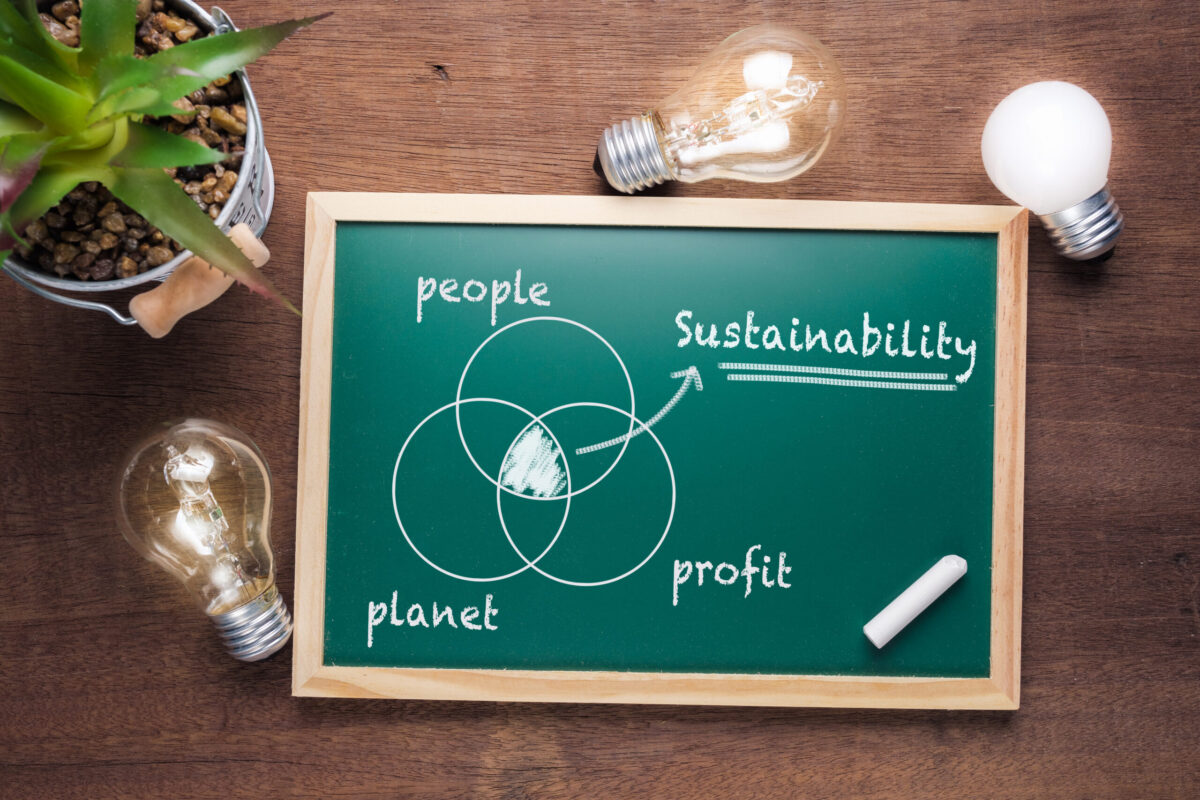SEARCH
Enter your search term below:
Close
Enter your search term below:

WORLD LEADING BUSINESS SUPPORT

The overarching goal of a sustainable business strategy is to positively impact the environment, society, or both, while also benefiting shareholders. However savvy business leaders are increasingly realising the power of sustainable business strategies in not only addressing the world’s most pressing challenges but driving their business success. But, defining what sustainability means, solidifying clear and attainable goals, and formulating a strategy to achieve those goals can be daunting.
One common way to understand a business’s sustainability efforts is using a concept known as the triple bottom line.
The triple bottom line is a business concept that companies should commit to measuring their social and environmental impact – in addition to their financial performance – rather than solely focusing on generating profit, or the standard ‘bottom line.’ It can be broken down into ‘three Ps’: profit, people, and the planet.
In a capitalist economy, a company’s success most heavily depends on its financial performance, or the profit it generates for shareholders. Strategic planning initiatives and key business decisions are generally carefully designed to maximise profits while reducing costs and mitigating risk.
In the past, many companies’ goals have ended there. Now, purpose-driven leaders are discovering they have the power to use their businesses to effect positive change in the world without hampering financial performance. In many cases, adopting sustainability initiatives has proven to drive business success. Below is a link to five examples of successful corporate social responsibility, published online via Harvard Business School which include Lego’s Commitment to Sustainability and Ben & Jerry’s Social Mission.
Successful corporate social responsibility examples.
The second component of the triple bottom line highlights a business’s societal impact, or its commitment to people.
It’s important to make the distinction between a company’s shareholders and stakeholders. Traditionally, businesses have favoured shareholder value as an indicator of success, meaning they strive to generate value for those who own shares of the company. As businesses have increasingly embraced sustainability, they’ve shifted their focus toward creating value for all stakeholders impacted by business decisions, including customers, employees, and community members.
Some simple ways companies can serve society include ensuring fair hiring practices and encouraging volunteerism in the workplace. They can also look externally to effect change on a larger scale. For instance, many organisations have formed successful strategic partnerships with nonprofit organisations that share a common purpose-driven goal.
The final component of the triple bottom line is concerned with making a positive impact on the planet.
Since the birth of the Industrial Revolution, large corporations have contributed a staggering amount of pollution to the environment, which has been a key driver of climate change.
While businesses have historically been the greatest contributors to climate change, they also hold the keys to driving positive change. Many business leaders are now recognising their responsibility to do so. This effort isn’t solely on the shoulders of the world’s largest corporations – virtually all businesses have opportunities to make changes that reduce their carbon footprint. Adjustments like using ethically sourced materials, cutting down on energy consumption, and streamlining shipping practices are steps in the right direction.
Why is the triple bottom line important?
To some, adopting a triple bottom line approach may seem idealistic in a world that emphasises profit over purpose. Innovative companies, however, have shown time and again that it’s possible to do well by doing good.
The triple bottom line doesn’t inherently value societal and environmental impact at the expense of financial profitability. Instead, many firms have reaped financial benefits by committing to sustainable business practices.
Beyond helping companies capitalise on a growing market for sustainable goods, embracing sustainable business strategies can be highly attractive to investors. Evidence has increasingly shown that firms with promising environmental, social, and governance (ESG) metrics tend to produce superior financial returns. As a result, more investors have begun focusing on ESG metrics when making investment decisions.
Doing well by doing good.
As the world’s most pressing challenges evolve, purpose-driven leaders are needed to spearhead initiatives that can spur positive change – but making those changes isn’t an easy task.
Finding these opportunities and making them successful takes both real courage and grindingly hard work. It’s often the businesses that have a purpose – beyond simply making money – that make the first move.
Although the road ahead is long and uncertain, it’s important not to be discouraged. The first steps toward sustainability start with the individual. Little by little, companies can unite around a common cause and have a real, measurable impact.
Get all the fresh insights first! Stay up-to-date with all the
latest investment news, blogs and all things SETsquared.
Close
Close